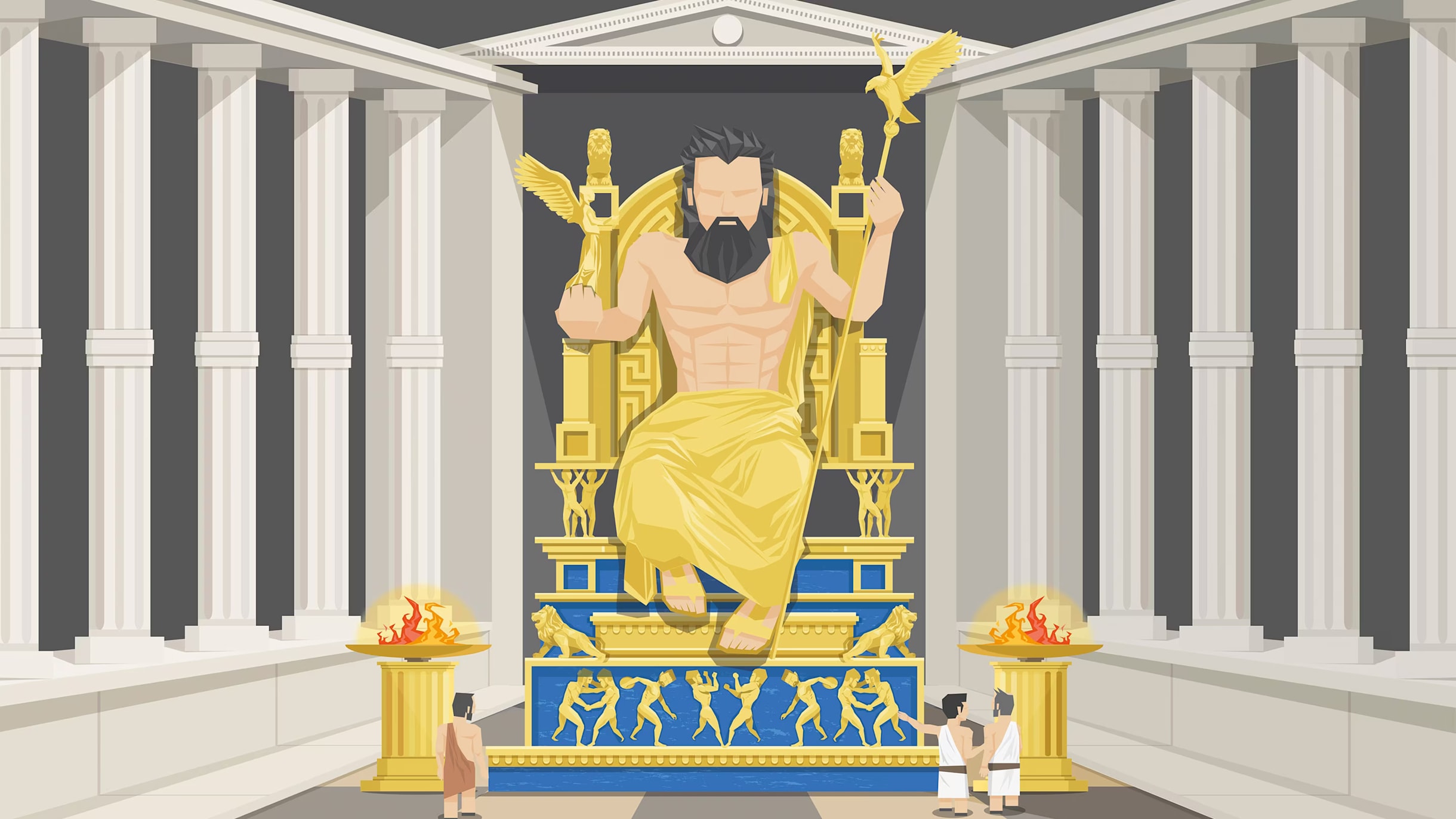
Olympics Mythology
The oldest myth which concerns the beginning of the Olympic Games is that of Idaios Daktylos Herakles. According to other myths, Zeus, the father of humanity, fought and defeated Cronus in a struggle for the throne of the gods. Finally, the well-known demigod Herakles is mentioned. He staged games in Olympia in honour of Zeus, because the latter had helped him conquer Elis when he went to war against Augeas.
Zeus was considered the most important of all the Olympic gods. He was originally worshipped as a god of meteorological change. He quickly became the god of fertility however, and was worshipped as Zeus the "infernal" (hthonios) or "farmer" (georgos). As Zeus the possessor (ktisios), he offered a good harvest; as Zeus the father (pater), he protected the family and all who lived nearby.
Hera was the sister and wife of Zeus and was worshipped all over Greece, but especially in the region of Argos. She was thus also called "Argeia". The epithets "perfect", "balanced" and "wedded" were used to describe her because she was considered the protector of marriage and the marital bond. Homer depicts Hera in her dual capacity as the most important female deity, but also the official spouse of the father of the gods.
The ancient Greeks believed that Athena was miraculously born out of the head of Zeus. She was first worshipped in the palaces of the Achaean rulers in the Pre-Hellenistic period. In Homer’s work, she is depicted as a warrior goddess wearing full armour from the prehistoric era. She was as important as Aris, the god of war, and favoured the prudent outcome of confrontations.
Apollo was the god of moral order and music, but his main capacity was to protect the art of divination. This is revealed by the plethora of oracles in various regions of Greece, the most famous being the oracle of Delphi, in Fokis. Apollo is also seen as a pastoral god, protecting his flock from the wolves. He was worshipped by the farmers as the god of the harvest. From Antiquity onwards, he had the reputation of a god of healing.